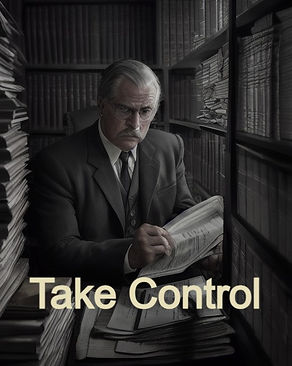
I have a judgment, but now what do I do?
If you've obtained a judgment in a family law case, you may be wondering how to collect on that judgment. At Garnishment Guru, we are experts in judgment enforcement and can assist you in collecting on your family law judgment.
Garnishments: seizing wages and bank accounts
Our team of experienced attorneys can assist you in enforcing a variety of judgments obtained in family law cases, including:
-
Property Judgments: If you have a judgment for the division of property, we can help you enforce that judgment and ensure that you receive your fair share of the property or value of it.
-
Attorney Fee Awards: If you've been awarded attorney fees in a family law case, we can help you enforce that award and collect the money owed to you.
-
Back Support: If you're owed back support from a former spouse or partner, we can help you enforce that judgment and collect the money owed to you.
-
Sanctions: If your former spouse or partner has failed to comply with a court order, we can help you enforce that order and collect any sanctions owed to you.
We understand that collecting on a judgment can be a complex and time-consuming process, but our team of experts is here to help. We'll work with you to determine the best course of action and use our knowledge and expertise to ensure that you receive the money owed to you. We rely on not only our extensive experience in judgment enforcement, but also our family law expertise to navigate the unique challenges and opportunities that arise in enforcing family law judgments.
Frequently asked questions:
Can I recover attorney fees for the costs of a garnishment?
Yes, however you can only recover up to $300 in attorney fees. You cannot always recover even $300, but for judgments over $3,000 you can. Sometimes a family law judgment will also allow for recovery of attorney fees incurred during collections, but it must be specified in the judgment or divorce decree.
Why are there so many steps if the Court already determined that my ex owes me money?
The procedures are in place to ensure that the judgment can be enforced, but also that it is enforced fairly. There are limits to how much money can be taken from paychecks and bank accounts as well as other protections for debtors. Overall, the process at this stage is heavily in favor of the person with the judgment though.
What are some of the ways that a family law judgment is different than other judgments?
A typical judgment results from routine consumer transactions such as credit card debts or unpaid bills. Those judgments are often uncollectible because the judgment debtor has severe circumstances preventing it. Family law debtors can be anyone including, unfortunately, people that are able to pay but refuse to do so out of spite. Another difference is that the judgment debtor may have existing obligations such as child support that are being enfored by the State which needs to be evaluated.
Should I hire an attorney?
Yes, and you should hire Baner and Baner Law Firm. Self-promotion aside it is usually best to hire an attorney to do garnishments. The process is not difficult, but it is technical. It requires at least one motion to the Court as well. Also, oftentimes small businesses do not understand the garnishment process fully and the creditor’s attorney is probably more capable of convincing them the proper route. Overall, you hire an attorney to avoid spending a large amount of time yourself trying to figure out the process and in the end you should be able to recover at least some of the attorney fees.
Jonathan Baner handles all of the firm's collection practice including garnishments, executions, attachments, lien foreclosures, etc. He has represented creditors and debtors in thousands of collection actions, but now focuses his efforts primarily assisting creditors.




